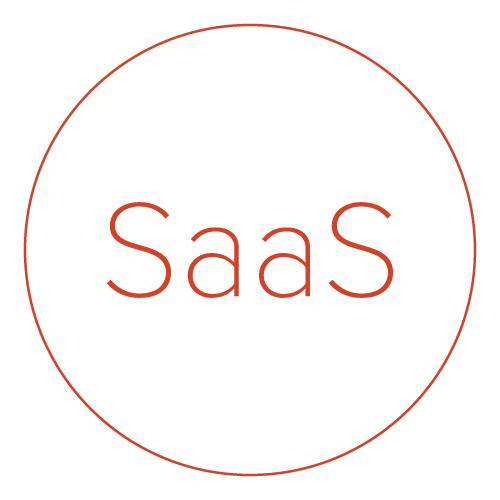
Cloud computing has been unstoppable for many years and it doesn’t show any signs of slowing. In fact, cloud computing adoption is still speeding up. Worldwide end-user spending on cloud services is forecasted to grow 20.7% to a total of $591.8 billion in 2023, according to Gartner.
But what is cloud computing and how can it empower your construction business?
Let’s take a deep dive into this emerging technology and see how you can implement the cloud in your construction business.
What Is Cloud Computing?
To begin answering the question, “What is cloud computing?” let’s start by visualizing how a computer functions normally.
Say you want to retrieve a file from your PC’s documents folder. You navigate to the file you want and double-click. This opens the document in your text editor of choice. The same principle applies if you’re on a network. However, instead of the file being stored locally, it’s stored on your server.
This is a rudimentary example of how cloud computing works.
A simple cloud computing definition is “the delivery of on-demand computing services — from applications to storage and processing power — typically over the internet and on a pay-as-you-go basis.”
Cloud computing typically comes in three main configurations:

Software-as-a-Service (SaaS)
Software-as-a-Service, or SaaS, is a basic example of cloud computing. SaaS provides the end-user with a completely functional program that is managed and maintained by the owner. It can often be accessed from anywhere, usually through a web portal.
End-users don’t need to worry about how a SaaS program is set up or implemented. You just have to open it and it’s ready to go. These are known as native-cloud applications.
Google Cloud or Microsoft 365 are examples of SaaS.

Platform-as-a-Service (PaaS)
Platform-as-a-Service, or PaaS, is the next most involved type of cloud computing. PaaS maintains even more of the processes you need for business. Most commonly, this involves storage solutions and operating systems.
PaaS is often part of a hybrid cloud setup. Many businesses choose to maintain some sort of private cloud infrastructure, especially if you have an office in any capacity.
You might have software and operating systems installed locally, for instance. Then you might have certain applications and resources available via the cloud, so remote workers and field agents can use them even if they’re out of the office.
PaaS is also beneficial, as you’re able to add and subtract resources as needed. Not every construction firm is going to need terabytes of storage capacity, especially if you’re just starting out. PaaS can spare you from having heavy overhead costs as well as paying for resources you don’t need.

Infrastructure-as-a-Service (IaaS)
It is a testament to how far technology has come that we don’t even need physical computers or software, theoretically speaking. You can run everything entirely virtually using the cloud. This is Infrastructure-as-a-Service or IaaS.
IaaS lets you add virtual machines, hard drives, and network connections as needed. This has a number of useful applications for the construction industry.
One common usage for IaaS is virtual desktops. One benefit of a virtual desktop is that everybody’s looking at the same thing, for starters. This automatically reduces miscommunication and reduces confusion.
IaaS also makes it so that your field workers have access to the same powerful technology as anybody in the office. This greatly diminishes the need for unnecessary trips, so your workers can focus on remaining productive and getting the job done, on time and under budget.
Cloud Computing in the Construction Industry
The construction industry involves a lot of data. Traditionally, that data would end up in siloes. Those could be a particular piece of software or on someone’s devices. Either way, that data isn’t available to the rest of your team or your enterprise as a whole.
A holistic approach to data management is essential if you want your construction business to remain competitive. This is also essential in maintaining the best possible customer experience.
The construction industry has some things that are particular about the way it uses cloud computing. Security is far more important in construction than in other industries, for instance. You tend to be dealing with substantial accounts with lots of sensitive data.
For construction professionals, having a trusted and secure cloud solution is more important than most. You need to know that your customer’s info will be safe with cloud security. Signing up for a fake cloud server would be disastrous.
When you’re working with a trusted cloud provider, you can find the exact setup that works best for you and your team. You can decide that a private cloud server would work best for your particular needs. Or you could set up a hybrid cloud server and get the best of both the digital and analog realms.
This positions you to set up other powerful tools, such as a cloud ERP platform. If you’ve worked on large, extensive construction projects, you know how important project management is. It’s no coincidence 97% of organizations believe project management is critical to business performance and success.
Cloud computing sets you up for success in today’s quickly shifting construction industry. It prepares you for anything, so you can be ready to pivot and thrive no matter what happens.
Are You Looking For The Next Generation ERP?
The construction industry has changed so much in the 21st century that it is virtually unrecognizable. Keeping up with the latest technology and trends alone is a full-time job. This can serve as a distraction from your actual goals of making great buildings and delivering world-class customer satisfaction.
However, if you’re in the process of evaluating next-generation software for your construction company, you shouldn’t pick a system just because it’s cloud-based. Watch the video below to learn the top 5 features of a modern construction accounting system!
